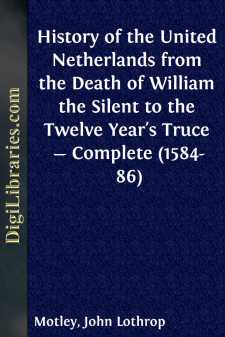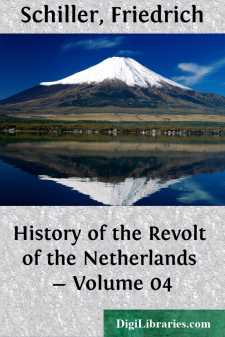History
- Africa 30
- Americas (North Central South West Indies) 50
- Ancient 68
- Asia 58
- Australia & New Zealand 8
- Canada 41
- Caribbean & West Indies 1
- Civilization 20
- Eastern Europe 12
- Europe 310
- Expeditions & Discoveries 60
- General 77
- Historical Geography 1
- Jewish 9
- Latin America 3
- Medieval 8
- Middle East 13
- Military 248
- Revolutionary 8
- Study & Teaching 5
- United States 353
- Western Europe 56
- World 13
History Books
Sort by:
Five great rivers hold the Netherland territory in their coils. Three are but slightly separated—the Yssel, Waal, and ancient Rhine, while the Scheldt and, Meuse are spread more widely asunder. Along each of these streams were various fortified cities, the possession of which, in those days, when modern fortification was in its infancy, implied the control of the surrounding country. The lower part...
more...
The effect produced in the republic by the defensive and uneventful campaigning of the year 1599 had naturally been depressing. There was murmuring at the vast amount of taxation, especially at the new imposition of one-half per cent. upon all property, and two-and-a-half per cent. on all sales, which seemed to produce so few results. The successful protection of the Isle of Bommel and the judicious...
more...
PREFACE. The indulgence with which the History of the Rise of the Dutch Republic was received has encouraged me to prosecute my task with renewed industry. A single word seems necessary to explain the somewhat increased proportions which the present work has assumed over the original design. The intimate connection which was formed between the Kingdom of England and the Republic of Holland, immediately...
more...
by:
Daniel Oakey
In taking up the thread of Captain George A. Thayer's admirable chapter upon the Chancellorsville campaign, we find the regiment baling out their old log pens, on a dark night, in the rain. They had stripped the canvas roofs before starting for Chancellorsville. The return to a deserted camp, even in fine weather, flushed with victory, is not agreeable. The failure of Chancellorsville made the...
more...
The two counts were a few weeks after their arrest conveyed to Ghent under an escort of three thousand Spaniards, where they were confined in the citadel for more than eight months. Their trial commenced in due form before the council of twelve, and the solicitor-general, John Du Bois, conducted the proceedings. The indictment against Egmont consisted of ninety counts, and that against Horn of sixty....
more...
by:
Emma Helen Blair
PREFACE In this volume is presented the first installment of Dr. Antonio de Morga's Sucesos de las Islas Filipinas. Events here described cover the years 1493-1603, and the history proper of the islands from 1565. Morga's work is important, as being written by a royal official and a keen observer and participator in affairs. Consequently he touches more on the practical everyday affairs of...
more...
The history of the Nineteenth Army Corps, like that of by far the greater number of the organizations of like character, in which were arrayed the great armies of volunteers that took up arms to maintain the Union, is properly the history of all the troops that at any time belonged to the corps or served within its geographical limits. To be complete, then, the narrative my comrades have asked me to...
more...
CHAPTER I. 1800-1825. Commencement of the Nineteenth Century.—Slave Population of 1800.—Memorial Presented to Congress calling Attention to the Slave-trade to the Coast of Guinea.—Georgia cedes the Territory lying West of her to become a State.—Ohio adopts a State Constitution.—William Henry Harrison appointed Governor of the Territory of Indiana.—An Act of Congress prohibiting the...
more...
CHAPTER I. THE UNITY OF MANKIND. The Biblical Argument.—One Race and One Language.— One Blood.—The Curse of Canaan. DURING the last half-century, many writers on ethnology, anthropology, and slavery have strenuously striven to place the Negro outside of the human family; and the disciples of these teachers have endeavored to justify their views by the most dehumanizing treatment of the Negro....
more...
CHAPTER XIII THE MILITARY DESPOTISM OF NICHOLAS I. 1. MILITARY SERVICE AS A MEANS OF DE-JUDAIZATION The era of Nicholas I. was typically inaugurated by the bloody suppression of the Decembrists and their constitutional demands, [1] proving as it subsequently did one continuous triumph of military despotism over the liberal movements of the age. As for the emancipation of the Jews, it was entirely...
more...











